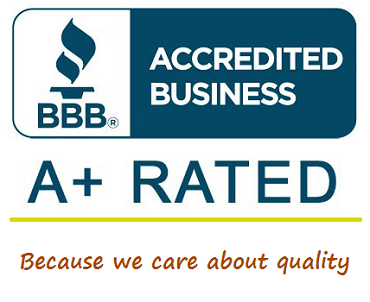
NCCI is a critical component within the entire workers' compensation insurance system. With over 900 employees, NCCI facilitates a better ecosystem for states, insurance companies, agents, and business owners. Their data and research enables both states and insurance companies to make critical decisions that affect the cost of workers' compensation insurance.
The insurance industry operates by offering coverage based on a calculated expected risk. NCCI has the broadest and deepest workers’ compensation database in the entire insurance industry.
Because of this collection and storage of historical claims data for particular industries, insurance carriers can price their policies based on a predictable risk factors. NCCI provides the information by gathering and storing data. Included in this data is 68.8 million medical data transactions, 3.3 million insurance policies, detailed claim information for about 210,000 claims, and residual market financial information representing approximately $900 million in written premium and $5.3 billion in current loss reserves.
Analyzes Workers' Compensation Trends
NCCI analyzes trends on a geographical and an industry basis. It does this to help carriers make better informed decision on how much to charge for premium based on a likelihood of a business filing a claim and how much those claims are expected to cost. Without this data, insurance carriers would not be making informed decisions and the cost for insurance premium would likely be much higher.
NCCI is the creator and overseer of the Scopes Manual. The NCCI Scopes Manual is used by insurance professionals to identify workers’ compensation class codes associated with each employee based upon the activities the employees do as part of their job. Each year there are between 700 and 800 individual classification codes.
If a business has employees that have different job responsibilities, those employees should be classified under separate classification codes. For instance, an office employee does much less risky activities and the premium for these employees is much less than a construction employee roofer. Keeping an accurate payroll is extremely important to make the end-of-term workers comp audit process run smooth.
Based on the data NCCI collects and the internal analysis, the organization recommends minimum and maximum premium rates for each individual class codes and states. There are nearly 800 unique classification codes. Each class code is designated because the duties related to each type of work function carry their own unique risks associated with the job.
NCCI offers loss cost recommendations for 35 states and the District of Columbia. NCCI communicates the recommendations through annual experience filings with the member states. NCCI relies on Financial Call Data that includes premiums, losses, claim counts, and expenses reported by state and by year. Loss Cost is teh actual costs for claims in state specific class code. Insurance companies use this data to calculate their own final rates for the various class codes.
Calculates EMR Ratings (Emod)
39 states rely on NCCI to calculate and issue experience modification rates to qualifying business owners on an annual basis. Emod's are bases on a companies payroll and claims costs. The factor compares business to the average of all the same businesses in the same state. An EMR Rating is based on the prior the 3 years prior to the most recent policy period. Claim frequency also influences the Emod.
Cost Analysis of Proposed Legislation
Each year, NCCI comes out with a Regulatory and Legislative Trends Report. As part of this report, NCCI tracks state and federal workers’ compensation bills. This can include legislation related directly to workers’ compensation systems; but also legislation related to first responders, prescription drug abuse, and even marijuana legalization. Multiple states are proposing legislation to allow first responders suffering from Post-Traumatic Stress Disorder (PTSD) to be covered under the workers’ compensation system. This could drastically increase the amount insurance carriers are forced to pay out to keep the workers' compensation systems solvent.
Depending upon the amount of additional increase in cost, it is safe to predict insurance carriers will raise rates a similar amount. Legislation that gets prescription drug abuse under control can benefit the workers’ compensation systems in a positive way because the injured workers will be using less medications and will remain on partial disability for a shorter amount of time. As medical marijuana legislation is passed throughout more states throughout the country, more doctors are subscribing the medicine. Whether or not legislation requires the workers’ compensation to cover medical marijuana can have an enormous impact on the costs related to the system in that state.
NCCI provides services to the following states: (link to state for more details)
These are the states that currently partner with NCCI for purposes of recommending minimum and maximum pure premium ratings for workers’ compensation insurance. These states have determined that NCCI can provide this service more efficiently than the state Department of Insurance could do on its own.
A workers’ compensation class code is a 3 or 4-digit number that insurance underwriters and agents use to identify specific categories of job duties. Not all states choose to partner with NCCI regarding these employee classification designations. Currently there are 35 states and the District of Columbia who use the services of NCCI for their workers’ compensation system. There are 11 states that use their own rating bureau. These bureaus are usually a part of the Department of Insurance in these states.
Four states are what is referred to within the insurance industry as monopolistic states. Being a monopolistic state means the workers compensation system in these states does not recognize coverage purchased in another state. Most other states have reciprocity laws that govern employees when they cross state lines. When a business has an employee who conducts business in a monopolistic state, the business needs to make sure to secure coverage within the monopolistic state. These issues can be dealt with by thoroughly discussing the operations of your business with your independent insurance agent.

Many business owners think their insurance carrier is NCCI. This is not accurate. NCCI partners with some states to analyze data and recommend minimum and maximum pure premium rates for workers’ compensation insurance. The organization does not offer coverage to any businesses in any of the states it provides services.
NCCI does operate as the placement facility for state fund workers' compensation in some states. State fund coverage must be quoted through a licensed insurance agent. Once coverage is bound, NCCI assigns the state fund policy to one of the participating insurance companies in a round-robbin format.
Compare Rates: 35+ CarriersGet a free insurance comparison today and see if your business qualifies for lower rates.
Save 30% on work comp for select businesses


See how Pay As You Go coverage helps with business cashflow.
NCCI Holdings- Policy FormNCCI created the standard policy forms used by most workers' comp carriers. The Workers' Compensation and Employers Liability Insurance Policy is widely used in both NCCI and independent rating states. NCCI's policy form also includes policy endorsement forms used to modify the terms of coverage. For example, a Voluntary Compensation Endorsement would allow a business owner to extend coverage to workers who may not be automatically entitled to coverage. This could apply to executive officers or others who would, otherwise, be excluded from coverage.

NCCI's primary objective is to adequately predict rates so that insurance carriers correctly price workers comp coverage using class code rating. As the administer of most state funds, or the residual market, NCCI also attempts to ensure these programs can financially support themselves. Finally, Their objective and neutral as a rating bureau so they may be of simultaneous value to insurance carriers and state insurance regulators.
Learn more about NCCI class codes and how they affect insurance rates.
Get the Best Workers Comp Insurance for Small Business

Our Process Makes us Your Best Choice for Workers' Comp Quotes
We will negotiate the lowest rates for your workers' compensation coverage. Give us a try at 888-611-7467
Ready to Start Your Quote?
Don't settle for cookie-cutter rates